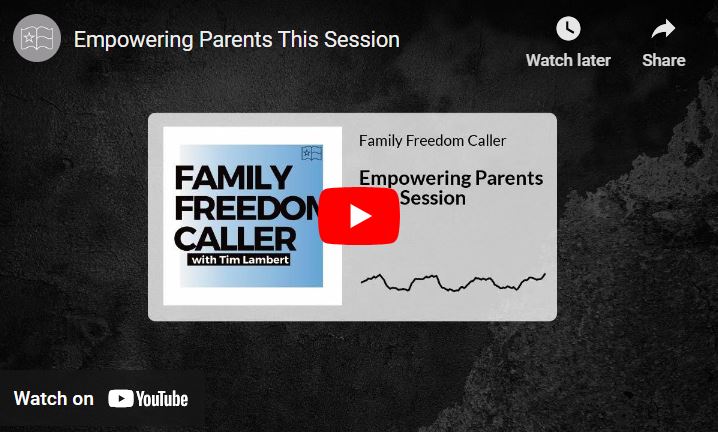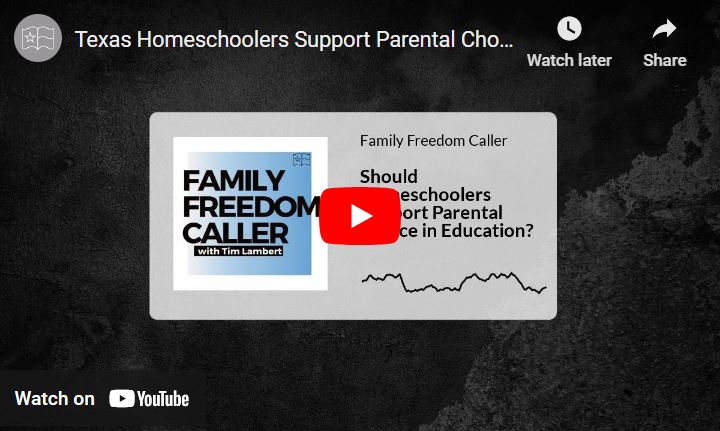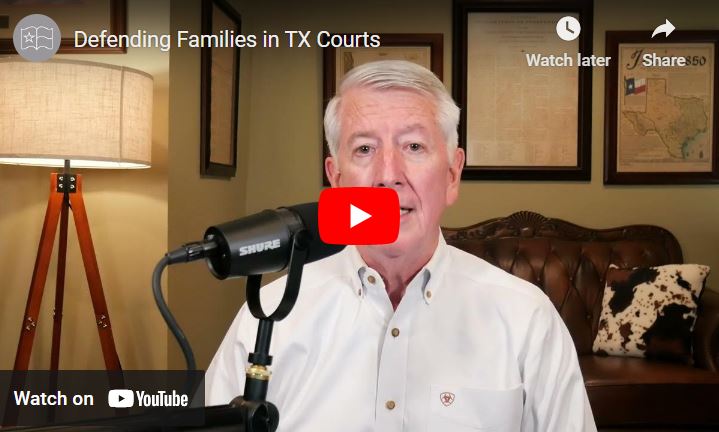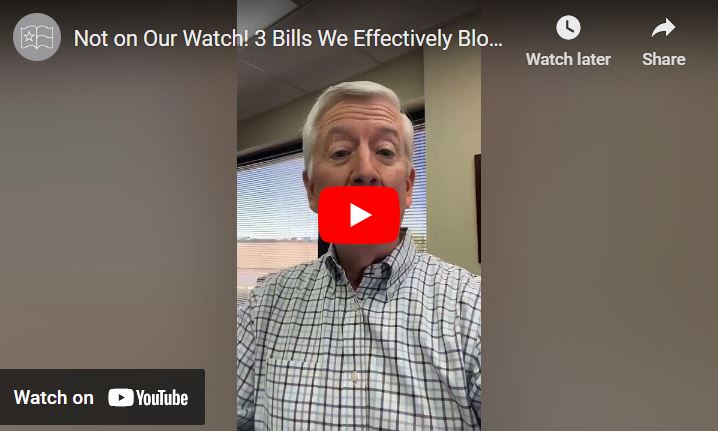The 85th Texas Legislative Session closed with significant progress reforming the Child Protective Services (CPS) system and protecting Texas families.
THSC worked with legislators, attorneys, judges, advocates, organizations and agencies to pass substantial CPS reform, which was one of Governor Abbott’s emergency items for the session.
CPS Reform: 9 Policies that Protect Texas Families
- Senate Bill 11: Enforces the current one-year deadline on CPS cases. This reform will protect families from being subjected to CPS cases that drag on for years beyond the current legal deadlines, as happened in the Tutt case.
- House Bill 7: Prevents termination of parental rights based on a family’s decision to home school or decline a vaccination. Although CPS does not currently have proper authority to investigate a family based on a family’s decision to home school or decline a vaccination, CPS has historically misconstrued these factors as basis for investigating a family and removing a child. HB 7 provides families with an explicit defense in cases where CPS uses home schooling or the decision to decline a vaccination against a family.
- House Bill 7: Prevents courts from terminating parental rights because of a parent’s inability to complete CPS services. Currently, the most common reason for termination is a parent’s failure to comply with court-ordered services. However, these services—usually a “one-size-fits-all” list of requirements—often do not apply to the parent. Or, required services may be unavailable in the parent’s area, be unaffordable, or conflict with other requirements necessary for the child’s return, such as full-time employment obligations. Parents who fail these requirements may have their rights terminated, even if the requirements were unreasonable. THSC worked closely with attorney Julia Hatcher, who proposed the language, and other advocates to amend HB 7 on the House Floor with changes which will prevent the court from terminating parental rights under these circumstances.
- Senate Bill 738: Requires CPS to file all cases related to the same children and the same CPS incident in the same court. Currently, a single family can find themselves defending the same CPS investigation before multiple courts at the same time—one court for each child. This reform will close legal loopholes that allow CPS to split up families in court and will ensure that CPS cases are consolidated when possible.
- Senate Bill 999: Allows the court to postpone a show cause hearing—for good cause shown—for up to one week when requested by the parent or the parent’s attorney. Although the law allows the court to postpone the show cause hearing for up to one week in cases where the court appoints an attorney to represent the parent, this protection does not extend to parents who represent themselves or hire an attorney. This reform solves this problem to protect all parents from insufficient preparation time for court.
- House Bill 7: Prohibits the termination of parental rights for both parents unless there is evidence to support the grounds for termination against both parents. In many cases where there is only evidence of abuse or neglect against one parent, CPS tends to file for the termination of parental rights against both parents by default. The bill requires the court to find clear and convincing evidence of the grounds for termination against each parent in order to terminate both parents’ rights.
- House Bill 7: Prohibits hearings without the parents present unless specifically authorized in the Family Code. Although the law outlines only specific cases when the court may hold a hearing without both parties present, courts often hold such hearings in CPS cases because, until now, they were not specifically disallowed from doing so. This bill simply states that courts may not hold these types of hearings without both parents present unless they are granted specific authorization via statute.
- Senate Bill 999: Requires the court to find actual risk of harm to a child in non-emergency circumstances before ordering the child to be removed from the home. Currently, in non-emergency situations where CPS requests that the court order removal of the child, CPS is not required to prove that there is any risk of harm to the child before removal from the home can take place. With THSC’s new language, a risk of harm to the child must be found before removal can be ordered by the court.
- Senate Bill 1063: Updates the investigation requirements for complaints from anonymous sources so that CPS is only allowed to visit a family’s home if alleged abuse or neglect cannot be “confirmed or clearly ruled out without a home visit.” Because CPS investigations are covered under two different sections of the law—general investigations and investigations specifically attributed to reports from anonymous sources—CPS has interpreted the statute to allow them to visit a child’s home as part of their investigation before confirming or clearly ruling out the abuse without a home visit if the report is from an anonymous source. The bill closes this loophole in anonymous report cases by allowing a home visit only if the abuse cannot be confirmed or clearly ruled out without a home visit.
The THSC Watchmen worked tirelessly to advocate for CPS reform throughout the 85th Texas Legislative session. Please consider donating to the THSC Watchmen as they continue THSC’s mission of Keeping Texas Families Free!
Also, follow the THSC Watchmen on Facebook, Twitter and Instagram to stay updated on post-session progress continuing to protect parental rights.
The 85th Texas Legislative Session closed with significant progress reforming the Child Protective Services (CPS) system and protecting Texas families.
THSC worked with legislators, attorneys, judges, advocates, organizations and agencies to pass substantial CPS reform, which was one of Governor Abbott’s emergency items for the session.
CPS Reform: 9 Policies that Protect Texas Families
- Senate Bill 11: Enforces the current one-year deadline on CPS cases. This reform will protect families from being subjected to CPS cases that drag on for years beyond the current legal deadlines, as happened in the Tutt case.
- House Bill 7: Prevents termination of parental rights based on a family’s decision to home school or decline a vaccination. Although CPS does not currently have proper authority to investigate a family based on a family’s decision to home school or decline a vaccination, CPS has historically misconstrued these factors as basis for investigating a family and removing a child. HB 7 provides families with an explicit defense in cases where CPS uses home schooling or the decision to decline a vaccination against a family.
- House Bill 7: Prevents courts from terminating parental rights because of a parent’s inability to complete CPS services. Currently, the most common reason for termination is a parent’s failure to comply with court-ordered services. However, these services—usually a “one-size-fits-all” list of requirements—often do not apply to the parent. Or, required services may be unavailable in the parent’s area, be unaffordable, or conflict with other requirements necessary for the child’s return, such as full-time employment obligations. Parents who fail these requirements may have their rights terminated, even if the requirements were unreasonable. THSC worked closely with attorney Julia Hatcher, who proposed the language, and other advocates to amend HB 7 on the House Floor with changes which will prevent the court from terminating parental rights under these circumstances.
- Senate Bill 738: Requires CPS to file all cases related to the same children and the same CPS incident in the same court. Currently, a single family can find themselves defending the same CPS investigation before multiple courts at the same time—one court for each child. This reform will close legal loopholes that allow CPS to split up families in court and will ensure that CPS cases are consolidated when possible.
- Senate Bill 999: Allows the court to postpone a show cause hearing—for good cause shown—for up to one week when requested by the parent or the parent’s attorney. Although the law allows the court to postpone the show cause hearing for up to one week in cases where the court appoints an attorney to represent the parent, this protection does not extend to parents who represent themselves or hire an attorney. This reform solves this problem to protect all parents from insufficient preparation time for court.
- House Bill 7: Prohibits the termination of parental rights for both parents unless there is evidence to support the grounds for termination against both parents. In many cases where there is only evidence of abuse or neglect against one parent, CPS tends to file for the termination of parental rights against both parents by default. The bill requires the court to find clear and convincing evidence of the grounds for termination against each parent in order to terminate both parents’ rights.
- House Bill 7: Prohibits hearings without the parents present unless specifically authorized in the Family Code. Although the law outlines only specific cases when the court may hold a hearing without both parties present, courts often hold such hearings in CPS cases because, until now, they were not specifically disallowed from doing so. This bill simply states that courts may not hold these types of hearings without both parents present unless they are granted specific authorization via statute.
- Senate Bill 999: Requires the court to find actual risk of harm to a child in non-emergency circumstances before ordering the child to be removed from the home. Currently, in non-emergency situations where CPS requests that the court order removal of the child, CPS is not required to prove that there is any risk of harm to the child before removal from the home can take place. With THSC’s new language, a risk of harm to the child must be found before removal can be ordered by the court.
- Senate Bill 1063: Updates the investigation requirements for complaints from anonymous sources so that CPS is only allowed to visit a family’s home if alleged abuse or neglect cannot be “confirmed or clearly ruled out without a home visit.” Because CPS investigations are covered under two different sections of the law—general investigations and investigations specifically attributed to reports from anonymous sources—CPS has interpreted the statute to allow them to visit a child’s home as part of their investigation before confirming or clearly ruling out the abuse without a home visit if the report is from an anonymous source. The bill closes this loophole in anonymous report cases by allowing a home visit only if the abuse cannot be confirmed or clearly ruled out without a home visit.
The THSC Watchmen worked tirelessly to advocate for CPS reform throughout the 85th Texas Legislative session. Please consider donating to the THSC Watchmen as they continue THSC’s mission of Keeping Texas Families Free!
Also, follow the THSC Watchmen on Facebook, Twitter and Instagram to stay updated on post-session progress continuing to protect parental rights.










